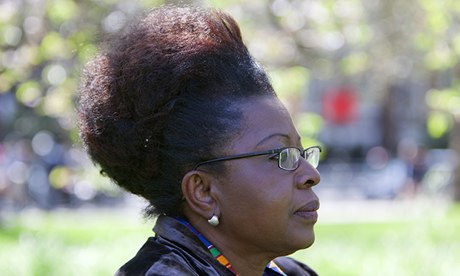
A major inquiry has been launched into female genital mutilation (FGM) to uncover why there has not been a single prosecution in the UK since it was made a criminal offence, and to try to bring an end to the illegal practice.
After sustained pressure from campaigners who have called for the the government to take action, the home affairs select committee will examine if the current legal framework is fit for purpose and look at why there has not been a prosecution in three decades.
Following a report from the Royal College of Midwives, which identified more than 66,000 victims of FGM in England and Wales and warned that 24,000 girls under the age of 15 were at risk, the committee will probe the systems for collecting and sharing information on FGM, which campaigners have stated is patchy in places and non-existent in others.
A petition from campaigner Leyla Hussein states that the battle to elimate FGM is failing because "multi-agency guidelines are not statutory, implementation at local authority and NHS level is disjointed, funding is minimal, and nobody is monitoring or holding anyone to account". It has garnered more than 94,000 signatures following her programme The Cruel Cut.
Efua Dorkenoo, head of Equality Now's FGM policy and a long-time campaigner, hailed the news as a significant breakthrough.
"It is brilliant news and I very much welcome the inquiry from the home affairs select committee," she said. "This is a significant move as it is the first time we have ever seen FGM addressed at the very highest level."
She called on the committee to take on board the recommendations made by the Royal College of Midwives report, which called for NHS workers to gather information on FGM and share it with police, education and social care workers as well as treating FGM as child abuse. It asked that health workers who detect evidence of FGM treat it as a crime and inform the police.
"We need a joined-up system with a focus on protection, prevention and prosecution with real leadership and accountability," said Dorkenoo. "If we do not get that then girls will continue to be mutilated. Without leadership from the top it will just be a talking shop."
Nimco Ali, who founded the anti-FGM charity Daughters of Eve, welcomed the news but said without the backing of the Department for Education the issue could not be effectively tackled. "The DfE is refusing to engage with this issue at all, and I would call on Michael Gove to speak to young people affected and make the issue of FGM and violence against women and girls part of the curriculum."
The committee will look at current awareness-raising efforts, the barriers to intervention, and how police, health, education and social care professionals work together. It will also look at the services that are available to girls and women who have suffered FGM and how they can be improved.
The chair of the committee, Keith Vaz, said: "It is shocking that 28 years on from female genital mutilation first being made a criminal offence, there has not yet been a successful prosecution in the UK. The committee's inquiry will seek to find out why this is the case, as well as considering what more needs to be done to protect at-risk girls.
"We would welcome evidence from those affected by this hideous crime as well as those whose responsibility it is to protect them."
The minister for crime prevention, Norman Baker, said the government was taking a firm line on FGM and was working with charities on on awareness-raising and with the DPP to secure convictions: "There is no justification for female genital mutilation – it is child abuse and it is illegal. I am determined we do all we can to bring perpetrators to justice," he said. "The law in this country applies to absolutely everyone and political or cultural sensitivities must not get in the way of preventing, uncovering and prosecuting FGM.
"Nor is there any religion which condones FGM so it's important that we get to the hard-to-reach communities who believe that their religion demands, or sanctions, FGM."

